Deng Fusheng, the inheritor of the state-level intangible cultural heritage: polishing national musical instruments and spreading Nujiang culture
In an inconspicuous house in Dapuluo Village, Shangpa Town, Fugong County, Nujiang Prefecture, the melodious sound of musical instruments often echoes, sometimes crisp and tactful, sometimes distant and full, making people feel like they are in a wonderful dream. The house is filled with traditional Nujiang national musical instruments such as qiben, kouxian and dilitu. This is the location of the "Deng Saisai National Musical Instrument Studio" of Deng Fusheng, the representative inheritor of Nujiang State's intangible cultural heritage.
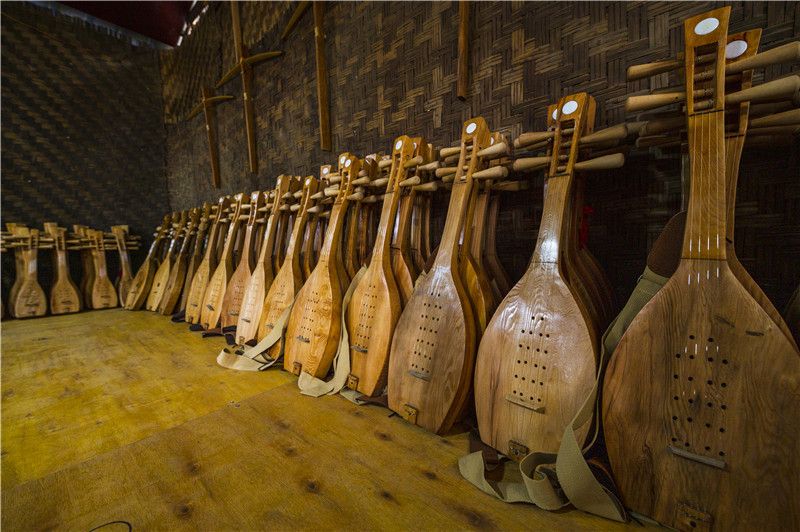
One side of the water and soil supports the other side, and the magnificent and colorful landscape of the Nujiang River has raised the people of the Nujiang River who can sing and dance. Deng Fusheng is one of the typical representatives. He has had a love for folk music since he was a child. Over the years, he has continuously practiced his skills, changed while persevering, made breakthroughs in innovation, accumulated small steps, and developed unique performance skills. , hard work pays off, he became the representative inheritor of the fourth batch of intangible cultural heritage projects in Fugong County. "I have liked to play ethnic musical instruments since I was a child. At first I learned from my grandfather. Later, I joined the cultural team and the Yunnan Ethnic Culture Training Center. I also followed the intangible cultural heritage inheritor Che Siheng and composer Tian Feng to learn systematically. National culture." Deng Fusheng said.
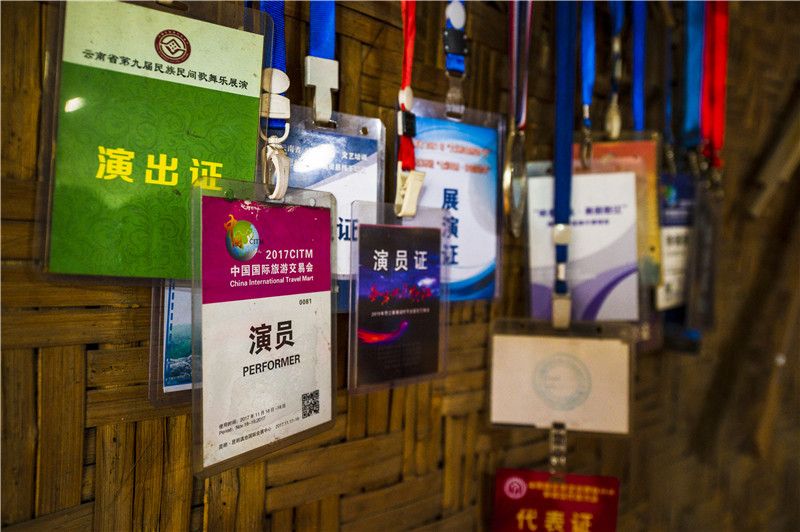
At first, Deng Fusheng just played traditional national musical instruments, but slowly he began to learn how to make these instruments. The production of musical instruments is not easy, and it needs to go through tedious and meticulous processes. Take the traditional Lisu musical instrument "Qiben" as an example. Composed of bridges and strings, the production of each part requires extra patience and care. "The selection of materials for making ''Qiben' is quite particular. In order to prevent the wood from being eaten by insects, the selection of materials is generally best in August and September. Most of them are made of wood such as sumac, Korean pine, and thorn-head vegetable. 'Qiben' is on sale. Before, you should also pay attention to preservation, it should not be exposed to the sun, wet and dry, otherwise the sound will change." Deng Fusheng said that wood is like a person, each piece has its own character, and only by complying with the temperament of the wood can we make "handy" "The instrument comes.
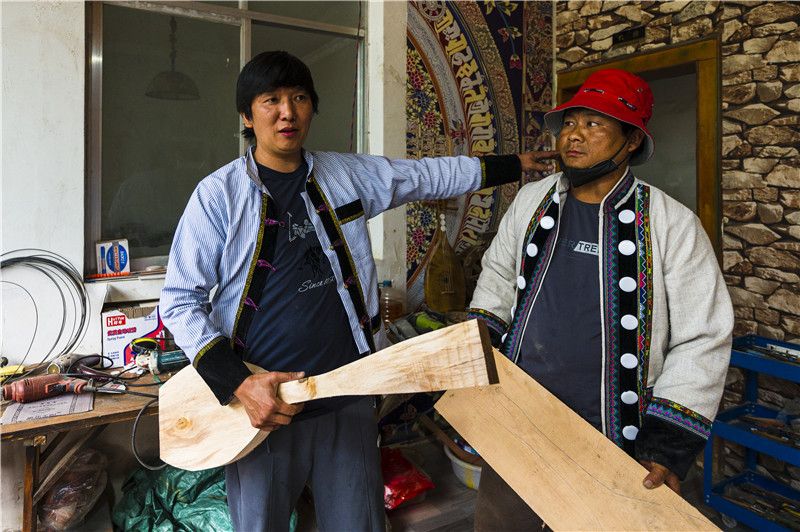
"After the selection of materials, the production can begin. From a piece of square wood to a delicate musical instrument, it has to go through more than a dozen processes such as picking materials, throwing materials, drawing, pushing planing, hooping, and tuning. The production process not only requires Exquisite woodworking skills, but also knowledge of music theory, and more importantly, the ability to endure loneliness and calm down." In such a slow time, Deng Fusheng carefully guarded the traditional craftsmanship, and with a passion, Deng Fusheng produced Create a piece of work that will satisfy both yourself and your customers.
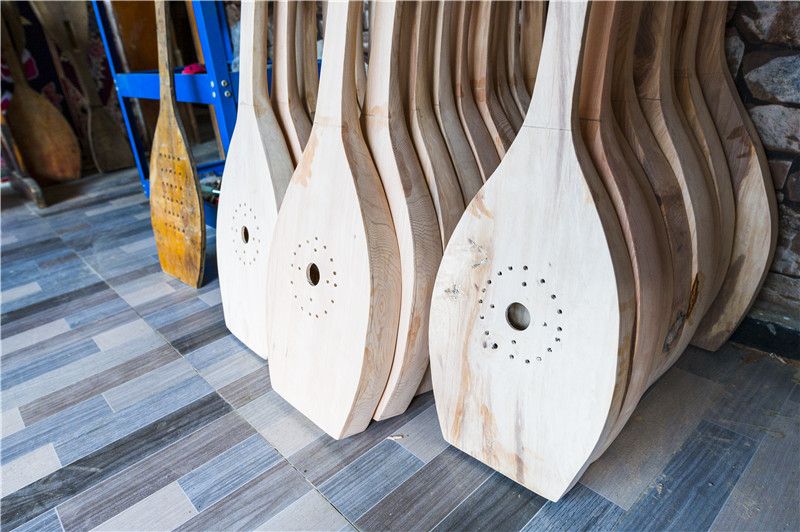
Deng Fusheng made the first batch of 20 Benzes, which played a great role in publicity after they were sold. In addition to Qi Ben, Deng Fusheng is also responsible for the production of Di Litu and Kou Xian, and has made positive contributions to the protection and inheritance of intangible cultural heritage. National traditional musical instruments are interdependent with national traditional music and traditional dance. It is not only rich in the expressive power of traditional dance music, but also an important way for people to understand the historical changes, production and life, and folk culture of this nation. It is also an important way to promote national unity and love. , an important carrier to enhance emotional communication. In order to better inherit the traditional culture of the nation, Deng Fusheng registered and established the "Deng Saisai National Musical Instrument Studio" to teach apprentices to make musical instruments and carry forward traditional production skills.
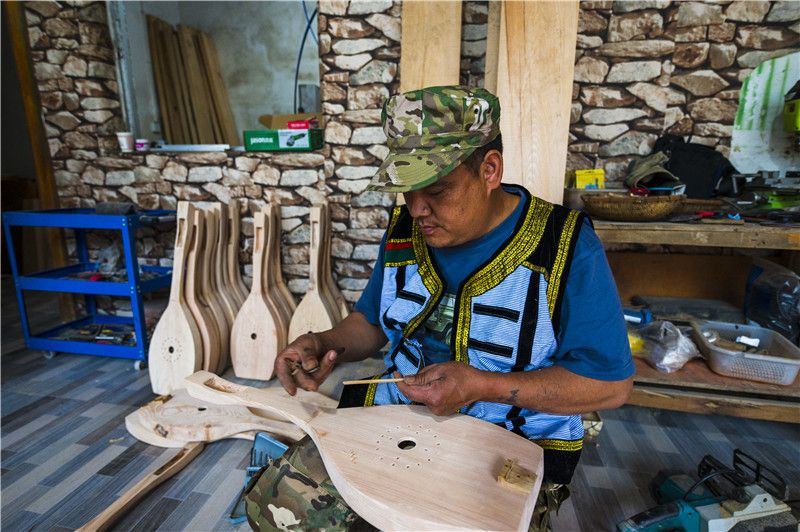
Because the musical instruments produced by Deng Fusheng are accurate in tone, beautiful in tone and beautiful in appearance, they are favored by the market. He used short videos, WeChat Moments, and physical sales in Yunnan ethnic villages to open up sales channels for traditional musical instruments, and he also gained a certain amount of income while inheriting the national culture. Today, he is not only a craftsman, but also a leader in getting rich in the countryside.
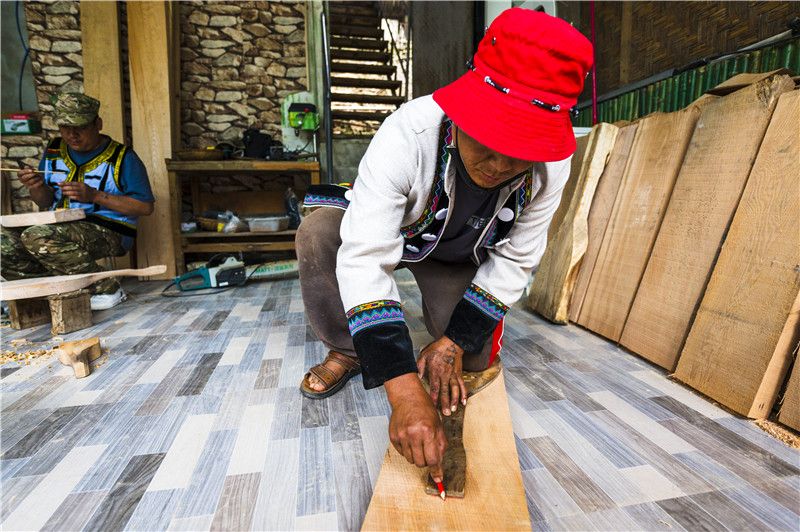
Deng Saisai Ethnic Musical Instrument Studio recruits apprentices to cultivate intangible inheritors, and conducts free musical instrument production and teaching, so that ethnic music can develop and grow. Combining online and offline sales methods, selling ethnic musical instruments such as qiben, harmonica and dilitu, driving villagers to become rich.
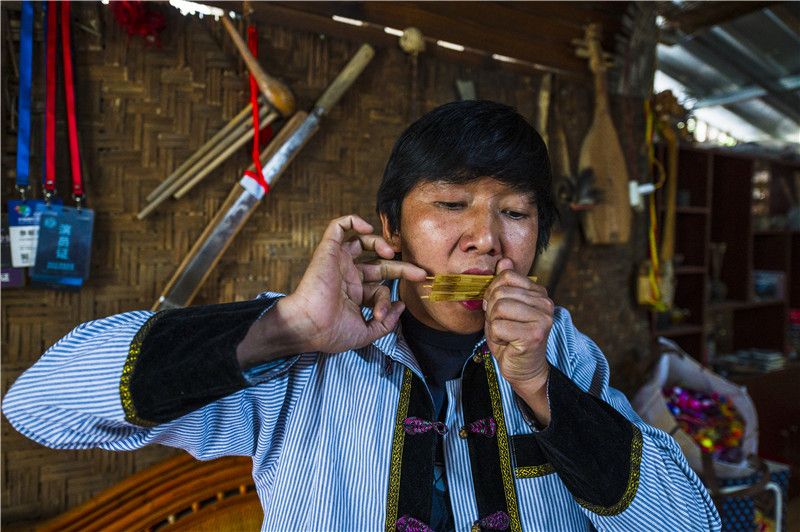
"Now, I have a lot of apprentices and teach them to make traditional musical instruments such as qiben, dilitu, kouxian, etc. They also have a certain income by selling musical instruments." Deng Fusheng introduced that he received apprentices and carried out musical instrument teaching. to cultivate heirs. "The country attaches great importance to the inheritance, protection and development of intangible cultural heritage, and has issued a series of policies to promote the development of intangible cultural heritage industries." Deng Fusheng said that although it is difficult to take the road of intangible cultural heritage, he is very optimistic about the future inheritance and development. full of expectation.
"I often participate in the activities of intangible cultural heritage entering the campus, the community, and the village. I want to pass on our national culture and let more people understand and like the Lisu culture." In the future, Deng Fusheng has a bigger goal. To build a Lisu cultural and amorous feelings garden integrating traditional songs and dances with Lisu national characteristics, restaurants with Lisu characteristics, and national culture exhibition halls, which can not only allow tourists to participate in Lisu singing, dancing, singing and dancing, and enjoy diverse performances such as climbing the knife mountain, descending the sea of fire, and shooting crossbow. It also allows tourists to feel the enthusiasm of the Lisu people in the process of experiencing the traditional national culture.
 渝公网安备 50010702504639号
渝公网安备 50010702504639号